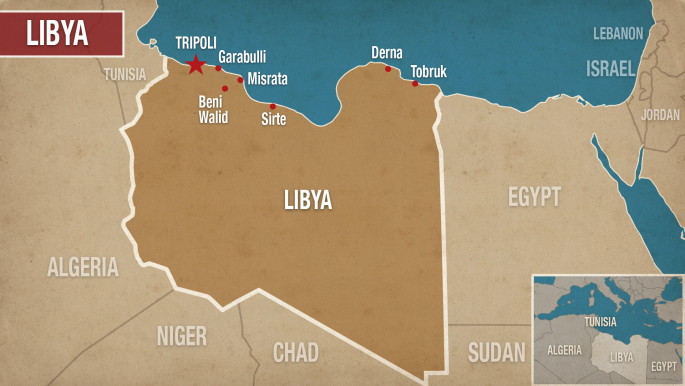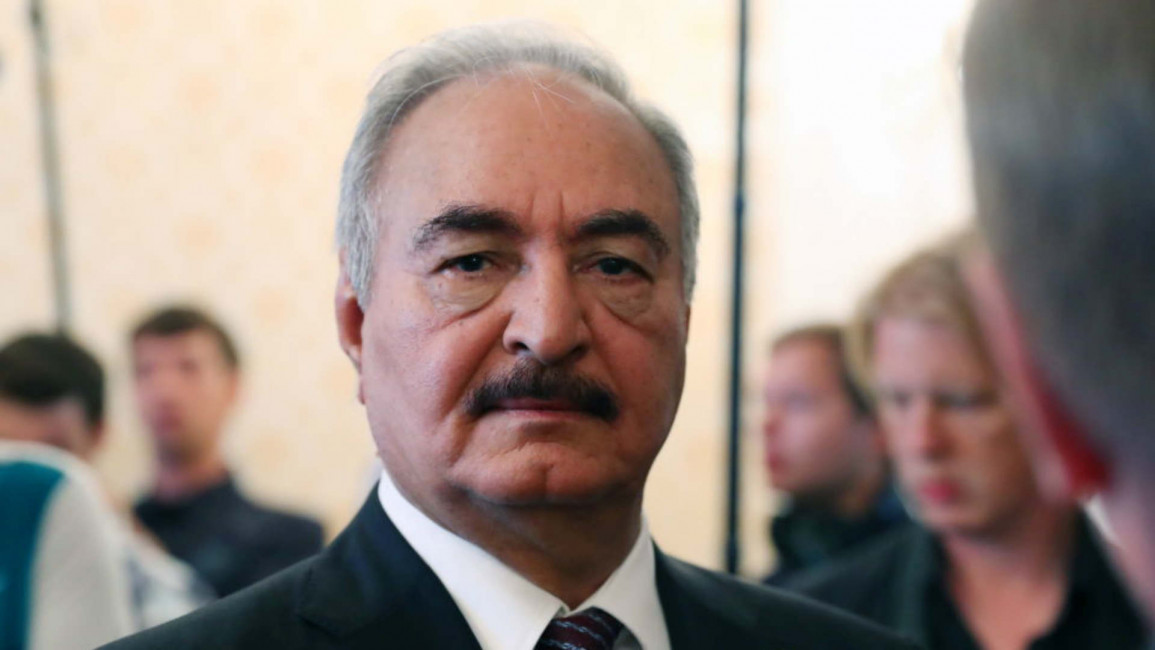
Haftar's grip is loosening, but what next for Libya?
But last Friday, 13 April the UN special envoy to Libya, Ghassan Salame stated that he had spoken to Haftar by telephone, and discussed political developments in Libya with him, quashing rumours of his death.
Assuming that Haftar is still alive and has survived this latest health scare, he is likely to be weaker, and reduced in his capacity to act as a military commander in Libya.
His departure from the Libyan scene - whether it comes now or further down the line - or a major loosening of his power over his Libyan National Army (LNA) would undoubtedly destabilise Libya's already fractious east and dramatically alter the dynamics of the ongoing Libyan conflict.
As The Guardian newspaper also puts it "Haftar's departure from public life for an extended period, or questions about his capacity, would throw the already deeply chaotic Libyan political situation into further disarray."
Also emerging over the last week is the degree of fragility in the Haftar leadership camp in Libya's East, as rumours of a potential power struggle between different factions have already started. Haftar belongs to the al-Furjan tribe from the West of Libya, and has been welcomed and given support by the main Cyrenaica tribes in the East, especially the al-Awaqir tribe around the Benghazi area where he set up his military command centre in 2014.
However, over the last four years the strongman has empowered his sons and many of his cousins to take important leading positions in the Libyan National Army (LNA) command hierarchy.
This has brought about agitation and dissent from key native Awaqir figures who felt that they were being pushed out despite all the support they gave and sacrifices they made to Haftar's "Dignity" operation and its military campaign.
 |
The UAE and Egypt in particular have invested much in Haftar as their 'proxy' in Libya over the last four years |  |
Some of these Awaqir figures have been arrested and imprisoned on Haftar's orders and a backlash demanding their release and restoration of position is now very likely.
This will likely precipitate a collision and power struggle between militants from the Awaqir tribe and Haftar's sons and cousins currently in control. This may well lead to a fracture and gradual disintegration of the LNA which has been built around the dominant figure of Khalifa Haftar. So far, no other figure has emerged who could maintain the cohesion of the various factions of this army in his absence.
Haftar has also been the main ally for the UAE and Egypt and has good ties with France and Russia. The UAE and Egypt in particular have invested much in Haftar as their 'proxy' in Libya over the last four years. They offered him unlimited political, military, logistic, financial and media support including direct military intervention and construction of major military base in the East of Libya.
 |
|
| [Click to enlarge] |
They hoped he would emerge as the dominant figure to rule Libya, either through military hegemony or winning a presidential election, and thus serve their interests best in a highly natural resource rich country with a huge potential for future development.
The disappearance or incapacitation of Haftar will leave their strategy and plans for Libya in tatters, and it will be difficult to find a similarly strong ally, able to deliver.
Russia, despite courting Haftar and hosting him on regular visits, has actually kept equidistant with him and the Government of National Accord (GNA) in Tripoli, and has turned down Haftar's invitation to set up a military naval base in the East of Libya.
France, on the other hand, is the one international power that would lose a close ally in Haftar, and have to revise its whole Libya strategy.
Indeed, the outcome of the Libyan conflict, as well as the overall dynamics and balance of power in the country, are likely to be greatly impacted by Haftar's potential absence form the scene.
Twitter Post
|
The political process has essentially been stalled since the signing of the Libya Political Agreement (LPA) in Morocco in December 2015.
One of the major obstacles has been Haftar who refused to recognise the agreement or the authority of the GNA that emerged as a result of it.
Haftar saw article 8 of the agreement as a deliberate ploy that could replace him as the general commander of the Libyan army. His loyalists within the Libyan parliament, the House of Representatives (HoR), based in Tobruk in the East of the country insisted that this article should be removed, and refused to ratify the agreement.
The Libyan parliament has been under the influence of Haftar to the extent that he threatened its members with mass dismissal if they went against his political will.
The head of the parliament, Aqela Saleh, has been prevented from making the necessary political compromises with the other side of the conflict in Tripoli in order to clear the political impasse.
Once Haftar leaves the scene, his stranglehold on the Libyan parliament will reduce significantly allowing it to rethink its position and to likely move forward with amending and implementing the political agreement.
Should there be an agreement between the various political factions in Libya to go ahead with elections either this year or next - as the UN special envoy Salame has suggested - Haftar is likely to be ruled out as a candidate.
 |
Haftar had threatened members of the Libyan parliament with mass dismissal if they went against his political will |  |
This would mean a presidential election without a military man as a serious contender, which would rassure many Libyans who fear the return of absolute military rulers who characterised the 42-years of Colonel Gaddafi's era.
The coming days and weeks are likely to confirm the exact fate of the controversial and divisive general, who looks to be fading quickly from the Libyan scene. The worst case scenario is that his army in the East will implode with a bloody power struggle and give rise to more violence in Libya.
At best, a replacement figurehead would be agreed upon by the regional sponsors, namely the UAE and Egypt and the main tribes of Cyrenaica.
In all cases a major shift in the dynamics of Libya will take place and hopefully this shift will hasten a genuine political agreement to end the traumatic conflict and a turbulent transition, leading to a comprehensive permanent accord and a new stable political order.
Guma El-Gamaty is a Libyan academic and politician who heads the Taghyeer Party in Libya and a member of the UN-backed Libyan political dialogue process.
Follow him on Twitter: @Guma_el_gamaty
Opinions expressed in this article remain those of the author and do not necessarily represent those of The New Arab.




